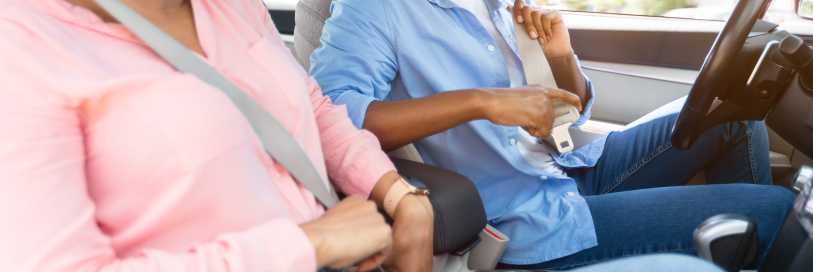Product Liability Lawyer in Columbia, SC

When a consumer or business owner purchases a product, they assume the manufacturer and retailer have ensured that it is safe to use. However, products that haven’t been designed or manufactured correctly are inherently dangerous and can lead to accidents and serious harm. If you have been injured because of a defective or unreasonably dangerous product, you have a right to hold the manufacturer and/or other liable parties accountable for your medical bills, lost income, and other losses related to your injuries.
At the Law Offices of S. Chris Davis, our Columbia product liability lawyer is dedicated to providing personalized service to our clients throughout South Carolina. Attorney Chris Davis takes great pride in representing people who’ve been injured through no fault of their own and has helped them seek the compensation they needed to put their lives back together. He is ready to do the same for you. Let our firm stand up to the negligent manufacturer or another third party in the supply chain that hurt you and pursue the justice and accountability you deserve.
Contact an attorney at the Law Offices of S. Chris Davis today for a free initial case review. Once you tell us about the details of your experience, we’ll be able to provide you with personalized guidance about your rights and options under the law.
What Is Product Liability?
Product liability is an area of the law that allows consumers to take legal action if they are injured by dangerous or defective products. An injured person can file a product liability lawsuit against the product’s manufacturer and other parties involved in making the product available to the public. Entities in the chain of supply that could potentially be held liable could include retailers, suppliers, and other parties involved in distributing the product.
Common Types of Product Liability Claims
Products that are often at the center of product liability lawsuits in South Carolina include:
- Prescription drugs, some of which are already the subject of lawsuits, such as Truvada, Fosamax, Valsartan, Invokana, and Yasmin
- Medical devices, such as ventilators/CPAPs, breast implants, and artificial joints
- Auto parts, including tires, brakes, airbags, and transmissions
- Defective vehicles, including boats, jet skis, ATVs, and aircraft
- Toys
- Baby/toddler products, such as cribs and strollers
- Tools, including saws, punch presses, and nail guns
- Kitchen or cooking tools and appliances
- Food products, including contaminated products or products containing unlisted ingredients
South Carolina Product Liability Law
Under South Carolina’s product liability law, a suit may be filed against any “seller” of a defective product. A “seller” is defined as any party that is regularly engaged in the business of selling or leasing a product for resale, sale, or consumption. The scope of this definition applies to:
- Manufacturers
- Wholesalers
- Distributors
- Retailers
A casual reseller of a product, such as someone selling their used goods at a garage sale or through an online bulletin board, does not qualify as a “seller” subject to South Carolina’s product liability law.
The law recognizes three primary types of product defects. Not all product liability cases conform to these broad categorizations, but a significant fraction of cases do. The primary kinds of product defects that lead to harm are:
- Design defects – Using the product as intended will likely result in injury due to something inherent in the product’s design. A design defect will affect every identical product. An example of a design defect is a toy with a sharp edge where the toy is supposed to be held.
- Manufacturing defects – An error occurs during the fabrication or assembly process that prevents the product from being used safely. Unlike a design defect, a manufacturing defect may affect only one copy of a product or it may impact multiple copies. An example of a manufacturing defect is a tire containing a rubber compound that does not meet design specifications, resulting in a weaker tire structure.
- Marketing defects/failure to warn or instruct – A product does not come with the necessary instructions or warning to ensure the product is used safely and as intended. An example of a marketing defect is a pharmaceutical drug that should not be taken with alcohol but lacks this warning.
South Carolina’s product liability law allows product injury victims to pursue compensation under two theories, depending on the circumstances of the case in question:
- Negligence: For a product liability lawsuit based on negligence, you will need to prove that the manufacturer or seller of a product breached a duty of care and that this breach caused your injuries. An example of negligence might involve a manufacturer failing to conduct a reasonable number of safety tests for a product or foregoing safety testing altogether.
- Strict liability: For a strict liability case, you can sue a manufacturer or seller for your injuries, even if the defendant named in your lawsuit was not careless or reckless. Instead, a strict liability case only requires you to show that the product was sold in an unreasonably dangerous or defective condition, the product was in that condition when it was in the liable party’s possession, and that condition caused your injuries. You may also be required to show that you were using the defective or unreasonably dangerous product as intended when you were injured.
What to Do If You’ve Been Harmed by a Dangerous or Defective Product
If you have been hurt by a dangerous or defective product, you can take the following steps to protect your right to file a product liability lawsuit to pursue compensation:
- Keeping the defective product if it is safe to do so
- Seeking medical attention as soon as possible to have a doctor document the injuries you suffered from the defective product accident
- Taking pictures and video of the scene of your injuries
- Preserving copies of bills, invoices, and receipts for expenses you incur due to your harm, such as medical expenses or property repair costs
- Keeping your pay stubs or income tax returns on hand to determine the amount of income you’ve lost if you’ve missed work due to your injuries
- Keeping a journal to document the pain and daily difficulties you experience because of your injuries
- Avoiding social media and, in particular, not commenting on the accident or posting photos or videos of yourself, as insurance companies often monitor injured victims’ social media accounts for posts that might discount a victim’s claims
Finally, speak with a Columbus product liability attorney at the Law Offices of S. Chris Davis to discuss what our firm can do to help you seek financial compensation from any liable parties.
